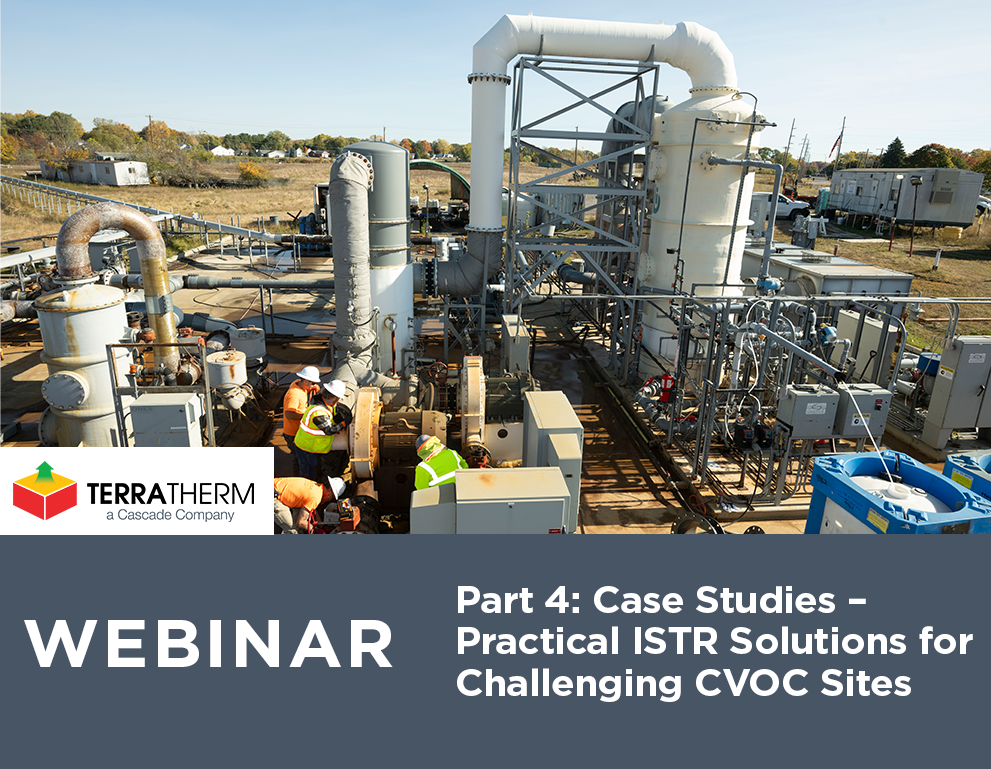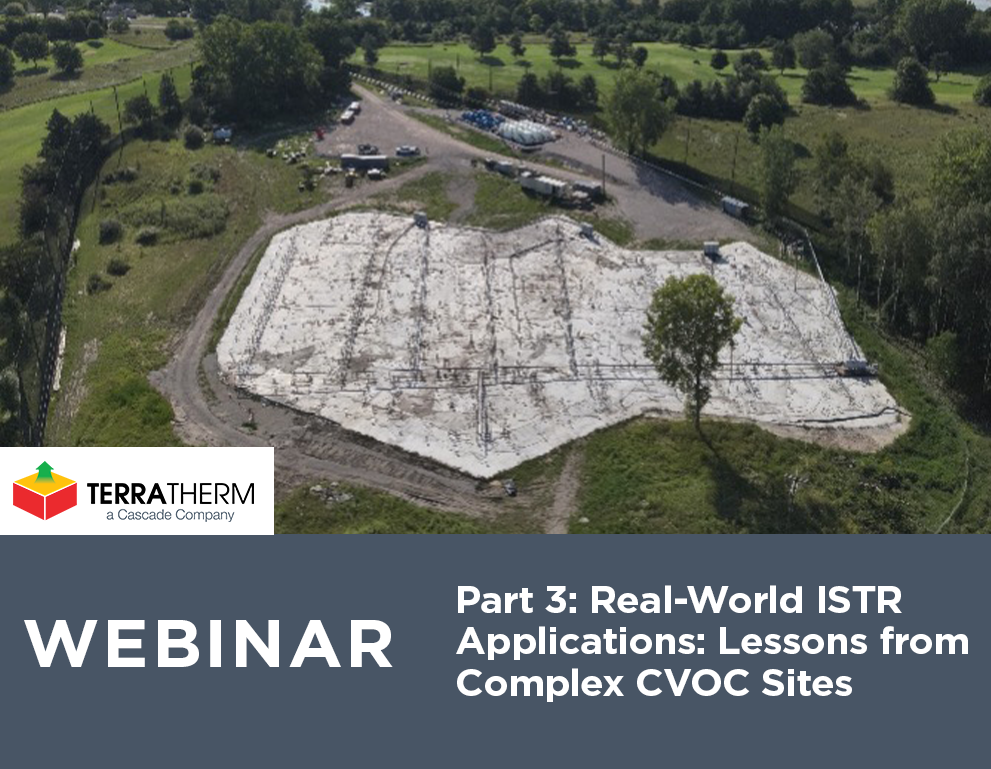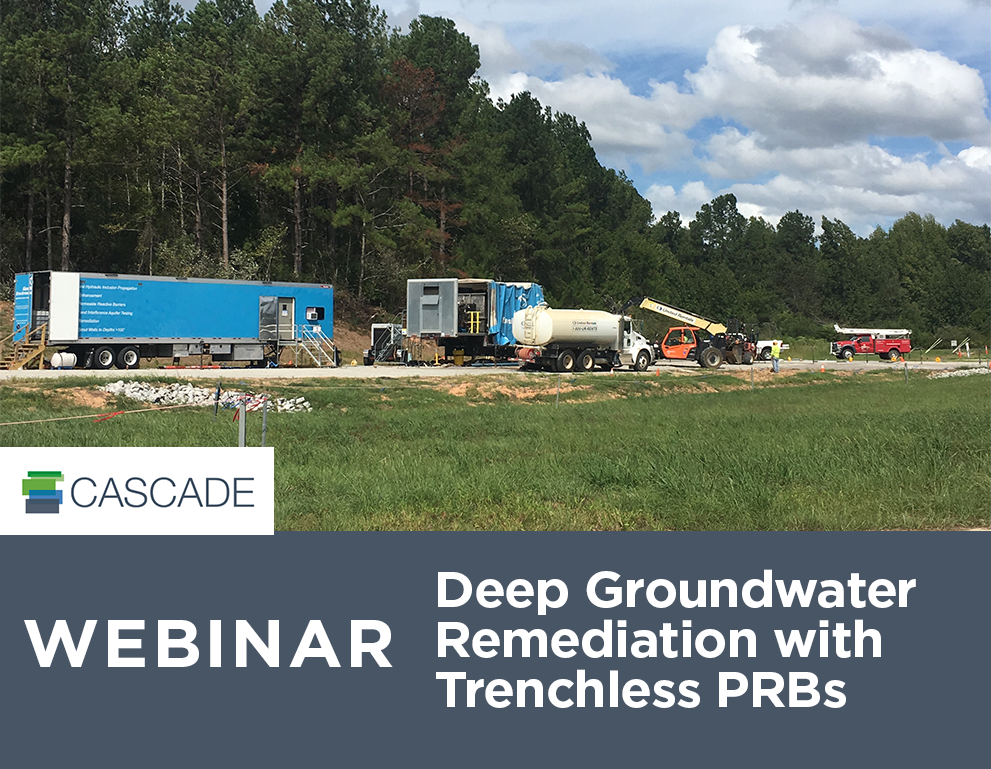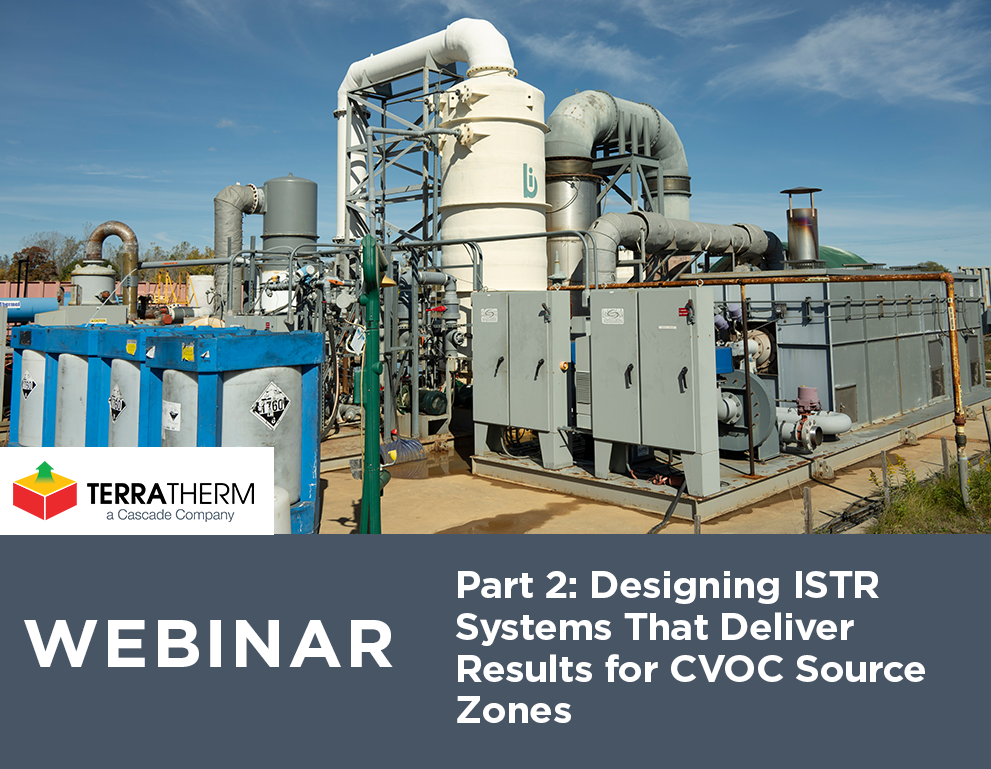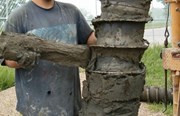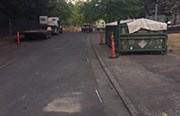3 Common Questions About Groundwater Sampling
By: Cascade EnvironmentalGroundwater is powerful. It can impact the stability of infrastructure and new construction, flow of contaminants, as well as human safety. Although every environmental drilling and remediation project involves potentially difficult tasks, groundwater sampling is especially important to get right.
In this blog post, we review three common questions new environmental consultants ask about groundwater sampling projects. If you’d like to dive in a little deeper click "watch now" and access our webinar, Sampling 104: An Introduction to Groundwater Sampling.
QUESTION 1: HOW CAN I DETERMINE THE DEPTH OF THE GROUNDWATER?
Groundwater tables vary by location, sometimes significantly. Subsurface conditions dictate where you’re going to find it, and they’re not always predictable. So how can you determine groundwater depth?
- Check public data from the US Geological Survey. Their National Water Information System (NWIS) is an extensive database that is available to everyone. They monitor groundwater levels across the country using thousands of wells, so this is a great first step in researching groundwater data near your project site.
- Talk to an experienced groundwater sampling contractor. Many companies keep records about groundwater depths they’ve sampled or drilled through, and if they do a lot of work locally, they may have information to help guide your project.
- Conduct soil sampling. This is the best way to determine groundwater depth—to go ahead and dig in! You’ll be able to determine when you hit the water table when the soil samples go from being dry to being saturated.
QUESTION 2: WHAT IS THE BEST METHOD OF COLLECTING GROUNDWATER SAMPLES?
There’s more than one way to collect groundwater samples, and some methodologies are more suited than others to specific situations. But how do you select the best one for your project? Your best bet is to speak to your groundwater sampling contractor. Here are some of the questions they’ll most likely ask before making a recommendation:
- Do you know the approximate groundwater depth, or do you need us to determine that?
- Are you interested in long-term monitoring or short-term monitoring?
- What is your timeline and/or deadline?
- What do you know about the project site lithology?
- Do you know what the contaminants of concern (CoC) are?
Once you provide that information, your contractor should be able to tell you which method and equipment will best meet your project goals.
QUESTION 3: HOW DO I SELECT THE RIGHT CONTRACTOR?
A contractor can provide you with valuable information—but how do you select a contractor in the first place? There are a few things you should keep in mind:
- Does this contractor have the right personnel? Experienced employees who have been working in groundwater sampling for years are an important resource. They can provide insight about alternative actions to take if things aren’t going according to plan, they can advise on the right equipment for a project site (which can save time and money), and they ask the right questions to make sure they’re on the same page.
- Does this contractor have the right equipment? Different drilling technologies can achieve different depths. Different pumping methods can potentially impact the quality of the sample. Contractors with a small equipment fleet are only able to offer you what they have, even if it’s not the ideal solution for your site. It’s wise to work with a contractor that has a variety of equipment available, so they can provide what is truly the best fit for your needs.
- Has this contractor worked on public utility or government projects before? If your client is a public utility or government agency, you know there are unique processes and requirements involved with working on their project. Contractors who have worked with these organizations before know the drill (excuse the pun), and are more likely to know how to adapt and comply.
- What is this contractor’s response time? You may very well have questions before, during or after groundwater sampling is complete—can you rely on your contractor to pick up or return your call in a timely manner? Issues like this may seem small but have an outsized impact on project success.
Groundwater sampling is only part of your project, but it’s an important component that has to be done right. If you want to learn more, click watch now and access, Sampling 104: An Introduction to Groundwater Sampling.





